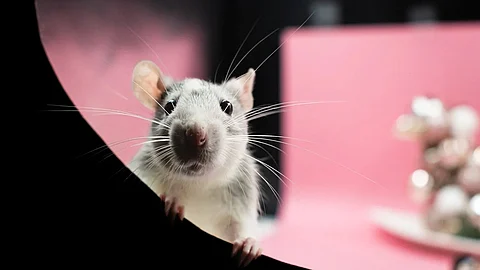

India's regulator, the Central Drug Standard Control Organization (CDSCO), is exploring the potential to reduce its reliance on animal studies in drug trials. The move aligns with the global shift, motivated by both ethical concerns and advancements in scientific alternatives to animal testing.
According to the report, the CDSCO is evaluating modifications to the current regulatory framework, however, any formal decision is expected to take time.
While a complete phase-out of animal testing may not be possible, the organization's focus is on minimizing its dependence on animal-based models.
Officials
Animal testing remains crucial in preclinical research, bridging the laboratory phase with human clinical trials. Mice and rats are among the most common species used for animal practice in preclinical research, forming the first step in a two-stage process where larger mammals are often used later.
Animal rights organizations, including PETA, have been vocal in opposing these practices, raising ethical concerns, and advocating for alternatives to animal testing.
According to PETA, over 110 million animals ranging from mice and rats to dogs and frogs are killed each year in the US laboratories alone. These animals are subjected to cosmetics, food, and drug testing, including exposure to harmful substances.
PETA contends that most animal experiments fail to advance human health meaningfully, questioning the significance of animal testing in driving medical breakthroughs.
The possibility of revising animal testing policies in India remains in its infancy, with a decision likely still some time away. An Indian official remarked that while the use of animals in biosciences research is being reconsidered, discussions on alternatives within the country's drug regulatory framework are still developing.
Recently, the topic gained prominence at the 19th International Conference of Drug Regulatory Authorities in India. A statement from the Union Health Ministry noted that the conference featured presentations advocating for robust regulatory frameworks for Advanced Therapy Medicinal Products (ATMPs) and alternatives to animal testing, highlighting WHO prequalification standards for in-vitro diagnostics (IVDs).
IVDs allow testing reactions in human tissues within a controlled lab environment, avoiding the need for live animal models.
Notably, India already prohibits animal testing for products like soaps and detergents. Alternative methods approaches include IVD, organ-on-a-chip technology, computational and mathematical models, and human-based clinical research.
This shift echoes international movements, such as the 3R approach-Replace, Reduce and Refine animal use in research discussed in a March 2024 Pharmacological Reviews article. This emphasized growing safety and ethical concerns around animal testing and highlighted the development of New Approach Methods (NAMs), which utilize human cell-based assays and computer modeling.
(Input From Various Sources)
(Rehash/Josna Lewis/MSM)
